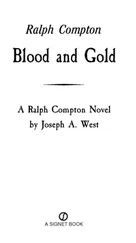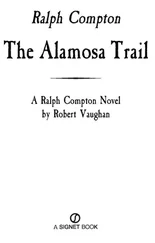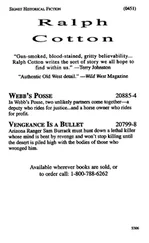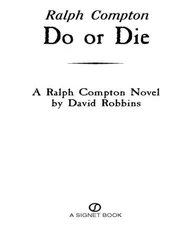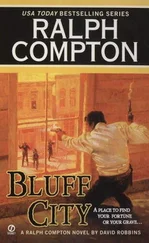Ralph Compton - West of the Law
Здесь есть возможность читать онлайн «Ralph Compton - West of the Law» весь текст электронной книги совершенно бесплатно (целиком полную версию без сокращений). В некоторых случаях можно слушать аудио, скачать через торрент в формате fb2 и присутствует краткое содержание. Год выпуска: 2008, ISBN: 2008, Издательство: Thorndike Press, Жанр: Старинная литература, на английском языке. Описание произведения, (предисловие) а так же отзывы посетителей доступны на портале библиотеки ЛибКат.
- Название:West of the Law
- Автор:
- Издательство:Thorndike Press
- Жанр:
- Год:2008
- ISBN:9781410409225
- Рейтинг книги:4 / 5. Голосов: 1
-
Избранное:Добавить в избранное
- Отзывы:
-
Ваша оценка:
- 80
- 1
- 2
- 3
- 4
- 5
West of the Law: краткое содержание, описание и аннотация
Предлагаем к чтению аннотацию, описание, краткое содержание или предисловие (зависит от того, что написал сам автор книги «West of the Law»). Если вы не нашли необходимую информацию о книге — напишите в комментариях, мы постараемся отыскать её.
West of the Law — читать онлайн бесплатно полную книгу (весь текст) целиком
Ниже представлен текст книги, разбитый по страницам. Система сохранения места последней прочитанной страницы, позволяет с удобством читать онлайн бесплатно книгу «West of the Law», без необходимости каждый раз заново искать на чём Вы остановились. Поставьте закладку, и сможете в любой момент перейти на страницу, на которой закончили чтение.
Интервал:
Закладка:
‘‘Not much farther,’’ Leggett said. ‘‘In fact I do believe we’ll soon see the lights of the place.’’
McBride, a man of the city, found the darkness disturbing. ‘‘Where are we going?’’ he asked.
‘‘Hell,’’ Leggett said.
Chapter 7
After a quarter of a mile, Leggett led McBride along the bank of a narrow creek that curved to the west and then opened up to a width of about ten feet, a few scrawny cottonwoods growing along its bank. Beyond the bend McBride saw the lights of a large cabin glowing dimly in the gloom.
‘‘This place used to be a stage way station before the railroad got here,’’ Leggett said. ‘‘Now it’s owned by Gamble Trask.’’
They walked to the door and Leggett asked, ‘‘Shall we enter?’’
The man looked suddenly older than his years and a strange, yellowish tinge clouded his face. There was a dark air of despondency about Leggett that took McBride by surprise. For a talkative man he had been oddly silent since they’d left the outskirts of town and now he seemed strained, like a man shuffling through yesterday’s memories.
‘‘I used to know this place well,’’ Leggett said. ‘‘There are times when I still wish I did.’’
The old man opened the door and McBride followed. Immediately his nostrils were assailed by a sweet, corrupt odor, like the stench of rotting flowers. He recognized it for what it was—the smell of opium smoke.
Had Leggett brought him all the way out here just to show him an opium den? New York was full of such places, though the authorities were cracking down on them because of the social costs. It was mostly the poor who smoked, seeking to escape lives of degradation and misery, but the toll among families was terrible. Many men spent all their wages on opium, preferring the drug to alcohol, and often the result was that their wives and children died of starvation. Workingmen addicted to opium did not eat and their bodies wasted away until they were living skeletons. Men like that could no longer perform hard manual labor and again it was their families that suffered.
McBride had always hated opium dens and the men who profited by them. Leggett had said that Gamble Trask owned the cabin. In addition to his saloon, was he also in the opium business? McBride could give the man the benefit of the doubt— maybe Trask just rented out the cabin. But he did not believe that, even as the thought had come to him.
The door opened on a long, hastily constructed corridor, and there was a window just beyond the door where addicts could buy the drug. A cheerful young Chinese man wearing a round black cap on his head grinned knowingly at Theo and said, ‘‘Good evening, Mr. Leggett.’’
Leggett waved, his face gray in the light of the single oil lamp that hung from the ceiling. ‘‘Good evening, Chang.’’
‘‘You dream some dreams tonight?’’
‘‘No.’’ Leggett shook his head. ‘‘No more of that for me, Chang.’’
The man called Chang scowled. ‘‘Then why the hell you here? This place busy. Very busy.’’
‘‘My friend may be interested in a pipe or two,’’ Leggett lied smoothly. ‘‘He wishes first to inspect the . . . ah . . . premises.’’
‘‘Clean place,’’ Chang said to McBride. ‘‘Very clean place, you see.’’ He waved toward a closed door at the end of the corridor where shadows gathered. ‘‘Take look, then come back and talk to me.’’
Leggett made a bow and extended his hand. ‘‘Shall we, Mr. Smith?’’
The door opened onto a large room, the darkness kept at bay by a few lamps that cast a troubled amber light. A sweet-smelling vapor hung in the air and the only sound was the soft gurgle of water pipes. Two Chinese men, both incredibly wrinkled, yellow and old, moved around silently on padded feet, now and then bending to check on the dozens of men sprawled on the floor like stone statues, pipes to their lips. As McBride and Leggett passed between them, the opium smokers neither moved nor looked up, their eyes either closed or frozen wide open as they drifted like phantoms through their demented dreams. Others smiled, the vague, empty smile of the living dead.
Leggett pointed to a couple of young girls who lay side by side on the floor. They were almost skeletal, skin drawn so tight against the bones of their faces that their cheeks were sunken, mouths open wide in a permanent, painful grimace.
‘‘Look at their arms, John,’’ Leggett whispered, like a man in some dreadful church. ‘‘See the track marks? Heroin addicts.’’ His smile was without humor. ‘‘There are quite a few of those in High Hopes.’’
‘‘Who are they?’’ McBride asked. He’d seen what heroin could do to addicts, but the sight never failed to affect him.
‘‘Does it matter? They’ll be dead soon, or so Dr. Cox says.’’ Leggett sighed. ‘‘They’re twin sisters, Hannah and Margaret Collins. At one time they worked for Gamble Trask at the Golden Garter, but not anymore. They sell themselves to any horny rooster who will give them enough money to come here.’’ The old man shook his head. ‘‘It’s sad really. They’re fourteen and they should be married and keeping their own houses by now. Instead . . . well, you can see the instead for yourself.’’
‘‘Leggett—’’
‘‘Theo, my boy, please.’’
‘‘Theo, why did you bring me here?’’
The old man was silent for a few moments, as though collecting his thoughts. ‘‘John,’’ he said finally, ‘‘all this, this hell, is owned and operated by Gamble Trask. It’s a steady moneymaker and he needs money, lots of it, to finance his ambitions. Trask doesn’t intend to remain in High Hopes and see his dreams confined by the wooden walls of a hick town. He has his sights set on Washington, the honorable senator from Colorado, and maybe higher. Trask is a man who desires power every bit as much as he does wealth, and believe me, that he craves like the poor creatures you see around you crave opium.’’
Leggett led the way to the door, then stopped, his eyes shadowed. ‘‘Trask has other ways of making money’’—he waved a hand around the room— ‘‘just as dirty as this. He traffics in young Chinese girls out of San Francisco, then ships them to the big cities back East. Out here the services of Chinese whores don’t bring a premium price, but they do in New York and Boston and other places. They’re marketed in big-city brothels as ‘exotics,’ and are always in demand. Trask’s Chinese girls, or slaves or whatever you want to call them, are anywhere from twelve to fourteen years old and when they reach the brothels their life expectancy is about two to four years. They die quickly from grief, disease or opium, and usually from a combination of all three.’’
McBride remembered the Chinese girls being herded into the alley behind the Golden Garter. Shannon had told him they were visiting a fortune-teller. Was she a part of Trask’s schemes? He refused to believe she could be party to anything so vile, and he said as much to Leggett.
‘‘Not here,’’ the man said. ‘‘Outside. If I stay here much longer, I’ll start to get my old urges again.’’
The Chinese man was not at the payment window when McBride and Leggett passed. Just as well, McBride decided. After seeing what was inside, he wasn’t feeling inclined to be sociable. He followed Leggett through the door into the clean, dark air of the night and the two men walked to the cottonwoods beside the creek.
McBride gulped fresh air and Leggett, watching him, smiled. ‘‘There was a time I loved such places,’’ he said. His eyes sought McBride’s in the darkness. ‘‘John, have you ever heard of Wild Bill Hickok?’’
‘‘Yes, even in New York. He’d make the newspapers every now and then, usually after he killed a man, and he was in all the dime novels.’’
Читать дальшеИнтервал:
Закладка:
Похожие книги на «West of the Law»
Представляем Вашему вниманию похожие книги на «West of the Law» списком для выбора. Мы отобрали схожую по названию и смыслу литературу в надежде предоставить читателям больше вариантов отыскать новые, интересные, ещё непрочитанные произведения.
Обсуждение, отзывы о книге «West of the Law» и просто собственные мнения читателей. Оставьте ваши комментарии, напишите, что Вы думаете о произведении, его смысле или главных героях. Укажите что конкретно понравилось, а что нет, и почему Вы так считаете.

